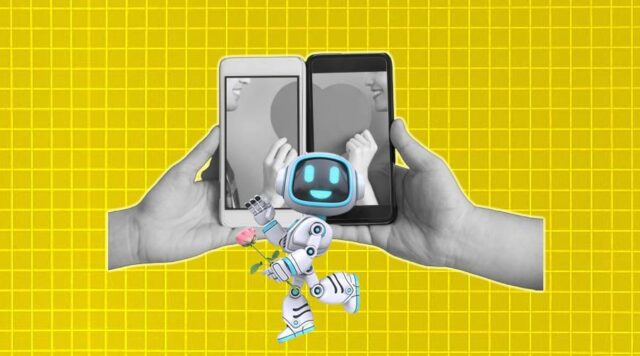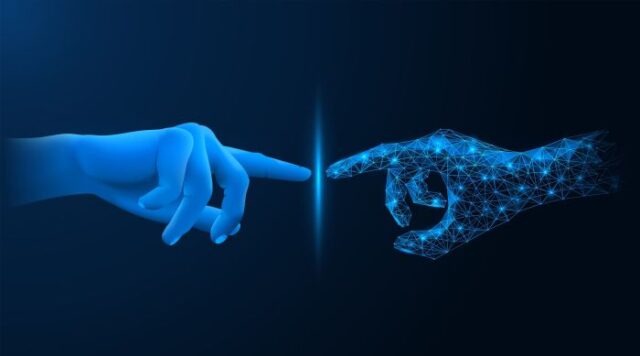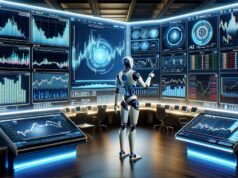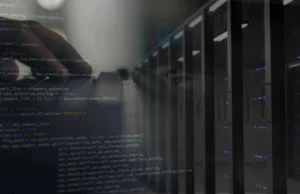
In a world where artificial intelligence has reshaped countless industries, the sphere of romantic liaisons is no exception. The integration of AI into dating platforms has been a game-changer, offering unique opportunities and challenges alike.
This blog delves into the intriguing world of AI-assisted dating, evaluating its implications, ethical conundrums, and prospective future developments.
The Pros
Source: studyonline.unsw.edu.auPeeking into the advantageous realm of AI-assisted dating, the promise of precision is its most captivating feature. Intelligent algorithms meticulously analyze user behavior, preferences, and interests, thereby fine-tuning the process of finding potential matches.
With this advanced technology, users can filter through millions of profiles in the blink of an eye, increasing the probability of discovering individuals who align with their expectations and criteria.
There’s more to AI’s appeal in the dating landscape than merely effective matchmaking. AI platforms revolutionize the dating experience by introducing personalized recommendations and curated advice, based on the nuances of user interactions and communication patterns.
Whether it’s suggesting conversation starters or providing feedback on dating profile images, AI support ensures a richer, more engaging journey toward finding that perfect partner. A dating platform like Feelflame is great for meeting your significant other.
The Cons
However, AI-assisted dating isn’t all roses. A fundamental challenge is the lack of genuine human interaction and intuition in the matchmaking process. While AI algorithms are designed to simulate human judgment, they still lack the emotional intelligence and intuition that often play pivotal roles in establishing real connections.
The result can be an over-reliance on an artificial system that may overlook those “unquantifiable” elements of human attraction.
The second drawback pertains to the illusion of infinite choices. As AI dating apps generate numerous potential matches, users may find themselves entangled in a paradox of choice, constantly second-guessing their decisions.
With so many options available, they may develop unrealistic expectations, constantly seeking the “next best thing” and delaying commitment, thus hampering the actual purpose of dating.
AI-Driven Matchmaking: How It Works

Understanding the workings of AI in dating platforms begins with acknowledging its foundation: data. Dating apps gather an extensive array of information, including your location, age, preferences, and interaction patterns.
This data forms the bedrock of the algorithms that power the AI systems, enabling them to create a sophisticated profile of each user and subsequently, potential matches.
However, data alone isn’t sufficient. The real magic happens when machine learning algorithms begin deciphering patterns and learning from the data. By continually analyzing and learning from user interactions, preferences, and feedback, the AI refines its recommendations over time.
The result is an increasingly accurate match prediction model that grows more personalized with each interaction.
Privacy and Security Concerns in The Apps
Despite the benefits, AI-assisted dating raises significant concerns about privacy and security. Firstly, dating apps amass a vast amount of personal data.
Without stringent protection measures, there is a risk of this sensitive information falling into the wrong hands, leading to potential misuse or data breaches. In this age of rising cyber threats, ensuring data security is paramount.
Adding to privacy concerns is the question of data usage transparency. Many users remain unaware of how these apps utilize their personal information.
This lack of transparency can lead to situations where data is used for purposes beyond the scope of the application, violating user privacy. Thus, dating platforms need to balance innovative matchmaking with the crucial task of safeguarding user data.
The Role of AI in Redefining Relationship Dynamics

AI’s role in dating extends beyond matchmaking. Technology significantly impacts the dynamics of relationships, shaping how individuals communicate and connect. Predictive text, sentiment analysis, and other AI technologies analyze conversational patterns to gauge compatibility levels, even predicting the likelihood of a successful relationship.
Simultaneously, AI-guided dating has the potential to broaden social horizons, breaking down geographical and cultural barriers. With machine learning algorithms capable of factoring in global data, the pool of potential matches becomes virtually limitless. This capacity to transcend borders can lead to more diverse, enriching relationships.
Unexpected Surprises and Challenges in AI-assisted Dates
With the advent of AI dating, come several unforeseen surprises and challenges. For instance, it’s not uncommon for AI systems to suggest matches that might seem unconventional or unexpected based on traditional criteria, prompting users to question the algorithm’s judgment.
However, these surprising matches may open doors to relationships users might never have considered, challenging traditional notions of compatibility.
Yet, these unexpected elements can pose challenges. Trusting an AI with personal information and intimate relationship decisions can lead to a sense of unease or discomfort.
The idea of an algorithm dictating human relationships may seem unsettling to some, highlighting the emotional complexity and human hesitation that accompanies AI-assisted dating.
Navigating AI Bias and Ethical Issues in Algorithms

Another critical aspect to consider is the potential bias and ethical issues inherent in AI algorithms. As AI systems learn from the data they’re fed, any pre-existing biases in the data can translate into biased outcomes. This bias could perpetuate harmful stereotypes or unfair discrimination, which is highly problematic in the realm of dating and relationships.
Resolving these issues involves comprehensive scrutiny of the datasets used in building these AI models. Ensuring the data is representative, unbiased, and ethically sourced is paramount to avoid perpetuating harmful biases.
As AI continues to permeate dating, developers, and users alike, must navigate these ethical dilemmas to create a fair and inclusive environment.
Future Trends: The Evolution and AI Integration
Looking ahead, the integration of AI in dating platforms is set to deepen further. Future developments might include increasingly personalized experiences, such as AI-powered virtual reality dates or biometric-based compatibility predictions. Such advancements will undoubtedly offer a more immersive, tailored dating journey.
Yet, amid these innovations, the role of human judgment and intuition remains crucial. Balancing technology with the timeless essence of human connection will be essential. As the future unfolds, AI dating will continue to evolve, not to replace human intuition but to augment it, making the quest for love an exciting journey of discovery.
Parting Thoughts
Source: cosmopolitan.comAI-assisted dating is a fascinating blend of technology and emotions, filled with incredible possibilities and challenges. While it offers a new level of precision and convenience, it also prompts critical questions about privacy, security, and the role of human judgment.
As we navigate this terrain, balancing technology’s power with the timeless intricacies of human connection will be key. As we look to the future, the intriguing union of AI and dating holds many surprises, promising a transformed landscape of love and relationships.












